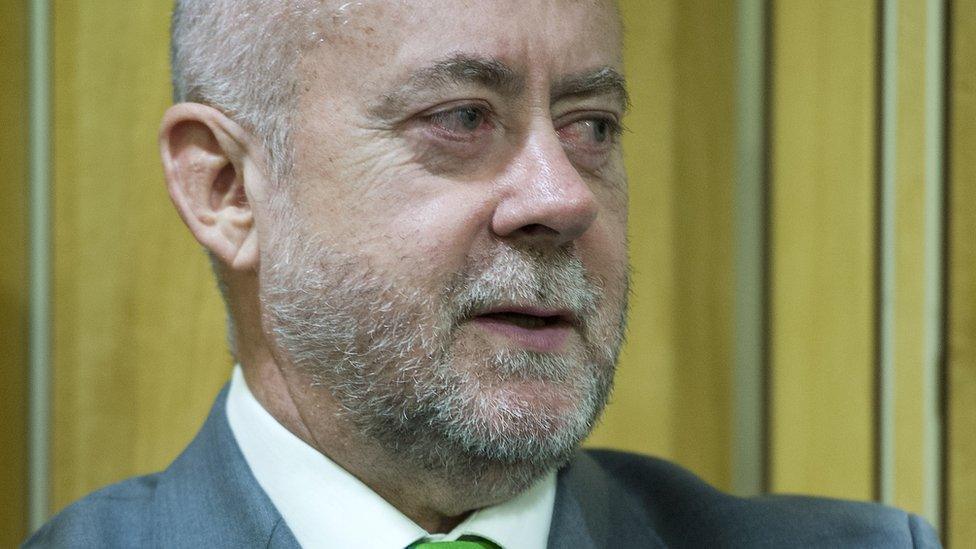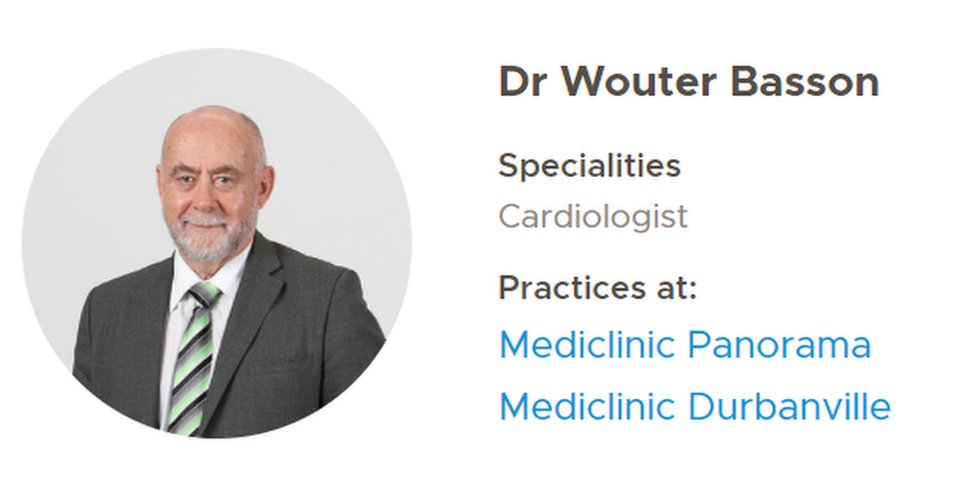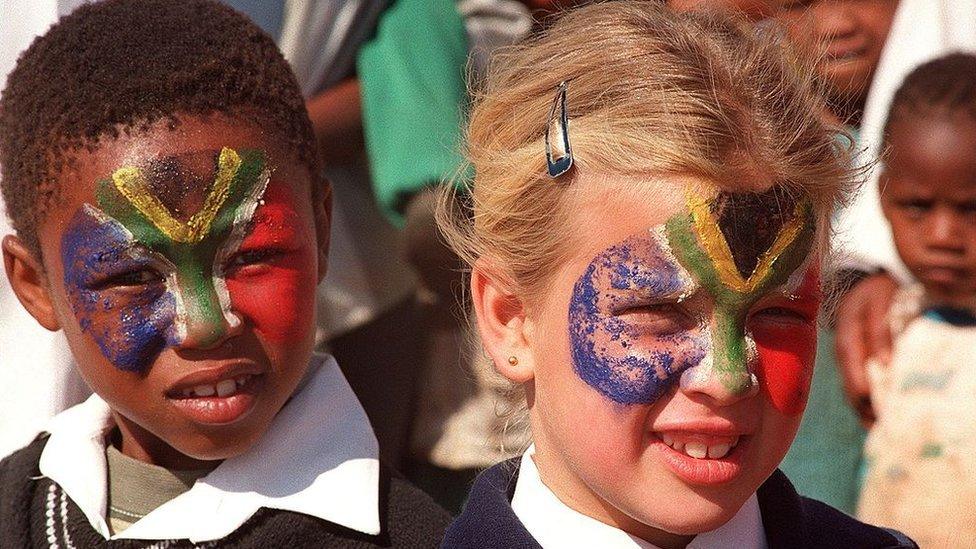South Africa 'Dr Death' row: Clinics defend Basson's right to practise
- Published

Wouter Basson has worked as a cardiologist in Cape Town since 2005
A private hospital group in South Africa has defended itself amid an uproar that the man dubbed "Dr Death" practises from two of its clinics.
Mediclinic said it could not stop Wouter Basson from practising as he was a registered doctor.
The cardiologist headed an apartheid-era secret germ warfare programme.
He has faced down numerous legal challenges over his work to produce drugs and agents to target anti-apartheid activists.
The 70-year-old's defence has been that he acted under orders of the South African Defence Force (SADF). The state has been paying all his legal fees over the years as he was a government employee at the time he ran "Project Coast" in the 1980s.
Thousands of people were killed during the fight against white-minority rule, which ended in 1994.
Dr Basson, who has been working as a cardiologist in Cape Town since 2005, was due to lose his medical licence after the country's health council convicted him of professional misconduct in 2013.
But in 2019 a judge ruled that two members of the disciplinary panel of the Health Professions Council of South Africa (HPCSA) had to recuse themselves because of bias - meaning the proceedings would have to start from scratch.
Mediclinic Southern Africa was responding to a Twitter storm after Dr Basson was found listed on its website as working at Mediclinic Durbanville and Mediclinic Panoroma in Cape Town.

The listing on Mediclinc's website
"By law doctors are independent practitioners and cannot be employed by Mediclinic Southern Africa. We cannot prohibit HPCSA registered doctors, including Dr Basson, from practising unless they are prevented by law from doing so," it responded on Twitter, external.
What did he do during apartheid?
Details of Project Coast emerged after the end of apartheid when it was revealed he was searching for a "black bomb" - a biological weapon that would only attack black people.
Dr Basson is also alleged to have provided security forces with cyanide to help them commit suicide, "weaponised" thousands of 120mm mortar bombs with teargas, provided drugs that would disorientate prisoners and looked at ways of making black women infertile.
He refused to apply for amnesty at the Truth and Reconciliation Commission (TRC), set up to draw a line under the conflict waged during the era of white-minority rule.
The medic then escaped a criminal conviction in 2002, arguing that he had been following orders.

What was apartheid?

Introduced in 1948 by the Afrikaner-led National Party government
Black people regarded as inferior
No vote for black people in national election
Races segregated in all aspects of life
Prevented black people from owning land in much of South Africa
Reserved most skilled jobs for white people
Scrapped in 1994 with the election of Nelson Mandela as first black president

Related topics
- Published18 December 2018
